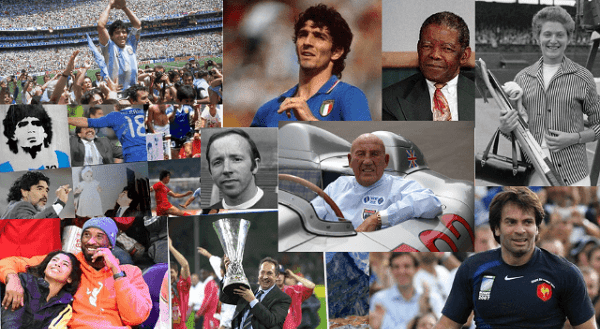DOHA (Qatar): 2020 would go down as one of the years which saw the world go upside down with the Covid-19 pandemic that not only devastated sports industry, but also the passing away of sporting legends including Diego Maradona’s death last month that shocked the sports fans.
Diego Maradona, 60
Maradona’s death brought Argentina to a standstill and caused a wave of grief in his adopted home of Naples. He brought joy to the southern Italian city by leading unfashionable Napoli to two Serie A titles and the 1989 UEFA Cup.
Kobe Bryant, 41
Bryant was killed in January alongside his 13-year-old daughter in a helicopter crash outside Los Angeles that also took the lives of seven other people. He was a two-time Olympic gold medallist, helping spark the US squad to titles in 2008 and 2012.
Paolo Rossi, 64

Rossi is a national hero in Italy for firing the ‘Azzurri’ to World Cup triumph in 1982. He finished the tournament as top scorer after scoring six goals, including a hat-trick in a 3-2 win over flamboyant Brazil, both goals against Poland in the semi-finals and the opener in the final win over West Germany.
Christophe Dominici, 48
France rugby great Dominici personified the fabled French flair with the oval ball, scoring 25 tries in 67 Tests for France, including eight tries across three World Cups. A long-time sufferer of severe depression, his suspected suicide shook the rugby world.
Angela Buxton
Two-time Grand Slam champion Buxton, who had Jewish heritage and was refused entry to tennis clubs her entire career, was a doubles partner and lifelong friend of Althea Gibson, whose 1956 French Open title was the first Grand Slam singles triumph by a black American player.
Silas Nkanunu, 87
Nkanunu was called the ‘Mandela’ of South African rugby, became the first black head of the game in the country in 1998 and was widely respected at a time of great internal conflict.
Nobby Stiles, 78
Stiles was described as the “heart and soul” of England’s 1966 World Cup-winning team. Stiles was a tough-tackling midfielder and an integral part of the Manchester United side who in 1968 became the first English club to win the European Cup.
Stirling Moss, 90
Moss was widely regarded as the greatest driver never to win the Formula One drivers’ world championship. He competed successfully in sports cars, touring cars and rallying, as well as the top levels of single-seaters.
Whitey Ford, 91
Ford was the New York Yankees’ all-time wins leader, a six-time World Series champion and Hall of Fame pitcher. New Yorker Ford died in October reportedly surrounded by his family watching his beloved Yankees, a team he had supported since he was five.
Tony Lewis, 78
Lewis was one of the men behind the Duckworth-Lewis-Stern method used in weather-affected limited-overs cricket matches. He devised the method alongside fellow mathematician Frank Duckworth.
Gerard Houllier, 73
The Frenchman put Liverpool back on track to domestic and European glory as manager from 1998 to 2004, winning a treble of trophies in 2001 and paving the way for the long-term recovery of a club he cherished.
Michel Hidalgo,87
Hidalgo is best remembered for his eight years in charge of France, which culminated with the stylish team of Michel Platini, Alain Giresse and Jean Tigana winning Euro 84 on home soil. It was France’s first ever major tournament success.
Ashley Cooper, 83
The former Australian, Wimbledon and US singles titleholder was part of the golden era of Australian men’s tennis in the 1950s, winning four major singles titles and four in doubles.
David Stern, 77
Stern masterminded the NBA’s growth into a global sports powerhouse while serving as commissioner from 1984 to 2014.
The NBA’s championship games were not televised live in the USA when Stern’s 30-year tenure began, but New Yorker Stern took the league to new heights and oversaw NBA stars taking part in the Olympics.
Ray Clemence, 72
Former England and Liverpool goalkeeper Clemence was one of the finest stoppers of his generation, winning three European Cups and five First Division titles during 14 years.
Viktor Ponedelnik, 83
Russian Ponedelnik scored the goal which won the Soviet Union the inaugural European championships in 1960, heading home in extra time to give the Soviets a 2-1 victory over Yugoslavia in the final in Paris.











